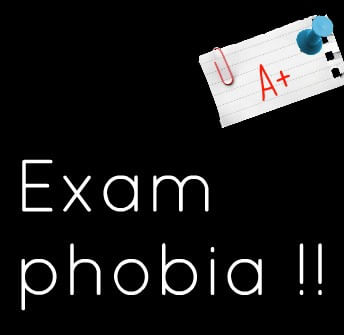Get the App
For Doctors
Login/Sign-up
Last Updated: May 06, 2016
BookMark
Report
Exam Fear - Exam Phobia - Tips
Dr. K V AnandPsychologist • 22 Years Exp.BASM, MD, MS (Counseling & Psychotherapy), MSc - Psychology, Certificate in Clinical psychology of children and Young People, Certificate in Psychological First Aid, Certificate in Positive Psychology, Positive Psychiatry and Mental Health
Exam fear or exam phobia or exam anxiety is a performance anxiety. Examinations are almost always stressful. Students rarely know exactly what to expect on the test, and those who suffer from exam fear or exam anxiety can see their grades suffer as a result of this stress. A little anxiety can actually help your performance, but some students become so overwhelmed that they" seize up" and forget what they have studied. Exam anxiety can strike before, during and after a test. Battling this type of performance anxiety can be difficult, but good study habits and learning how to relax can help.
Step 1
Develop good study habits. Proper study habits and preparation are the keys to cutting out exam fear
Step 2
Keep your mind and body healthy by getting enough sleep, eating well and exercising.
Step 3
Meet with your instructor to aid in focusing your study sessions.
Step 4
Practice positive self-talk as you prepare for the test. Create a mantra to help you calm your test anxiety. Repeat a phrase, such as" I just need to do my best" or" I will be prepared for this test"
Step 5
Relax the night before your test. A last-minute review can help you remember facts, but fretting over last-minute studying is likely to cause you more anxiety.
Step 6
Beat the morning rush by waking up early. Give yourself time to eat a nutritious breakfast that won't weigh you down or feel greasy in your stomach.
Step 7
Manage your anxiety with relaxation exercises as you wait for the test to start.
Step 8
Scan the test to find questions that are easy. Answer those test questions to give yourself a confidence boost.
Step 9
Understand that you are not alone and ask for help as necessary. Exam fear is normal.
Step 10
Reward yourself after the test is over. The reward gives you the break you deserve after all of your studying. Treating yourself also helps you stop thinking about the test and analyzing every little mistake you may have made.
Please consult a psychologist for counseling and valuable tips.
Step 1
Develop good study habits. Proper study habits and preparation are the keys to cutting out exam fear
Step 2
Keep your mind and body healthy by getting enough sleep, eating well and exercising.
Step 3
Meet with your instructor to aid in focusing your study sessions.
Step 4
Practice positive self-talk as you prepare for the test. Create a mantra to help you calm your test anxiety. Repeat a phrase, such as" I just need to do my best" or" I will be prepared for this test"
Step 5
Relax the night before your test. A last-minute review can help you remember facts, but fretting over last-minute studying is likely to cause you more anxiety.
Step 6
Beat the morning rush by waking up early. Give yourself time to eat a nutritious breakfast that won't weigh you down or feel greasy in your stomach.
Step 7
Manage your anxiety with relaxation exercises as you wait for the test to start.
Step 8
Scan the test to find questions that are easy. Answer those test questions to give yourself a confidence boost.
Step 9
Understand that you are not alone and ask for help as necessary. Exam fear is normal.
Step 10
Reward yourself after the test is over. The reward gives you the break you deserve after all of your studying. Treating yourself also helps you stop thinking about the test and analyzing every little mistake you may have made.
Please consult a psychologist for counseling and valuable tips.



+1.svg)
